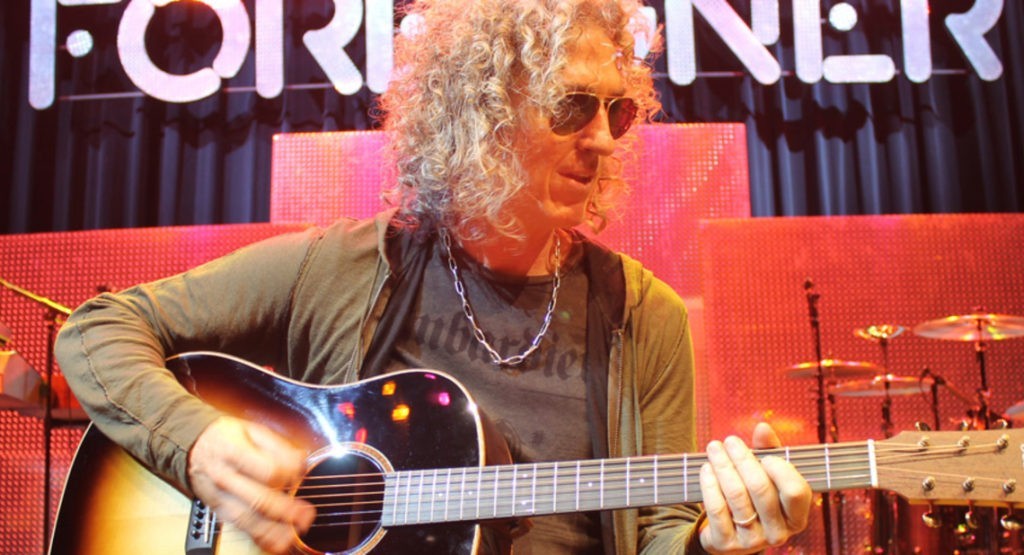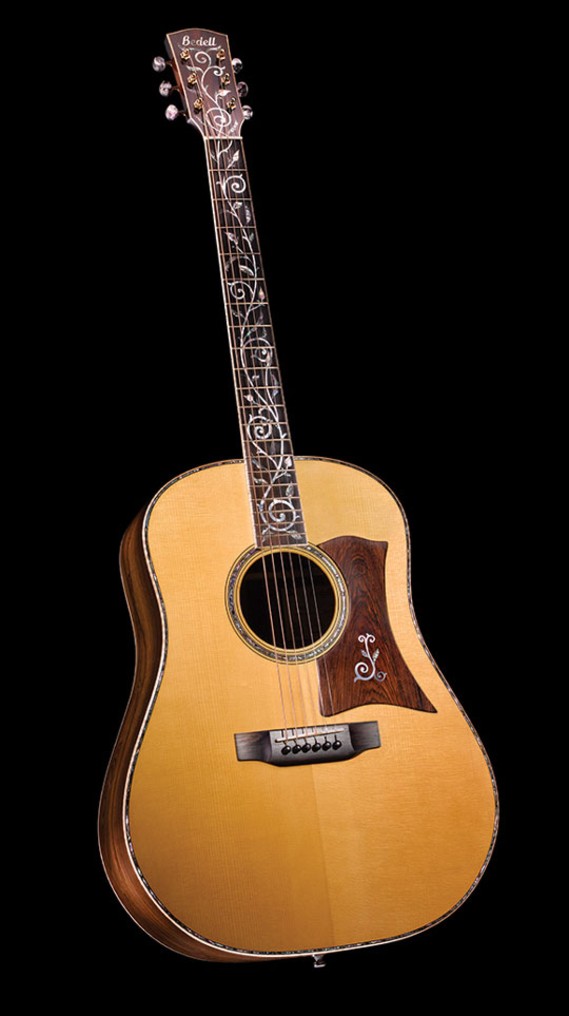Exclusive Artist Interview: Bruce Watson of Foreigner

Ial June 1978. Smack in the middle of an incredible year for rock and roll, Foreigner’s “Hot Blooded” hits the radio, opening with a distinctive Mick Jones riff and following through with a winking lyric that still struts 40 years later.
Bruce Watson recalls turning up the volume on the song as a young man, and now, as lead guitarist, he turns up the volume each night to play the tune onstage to thousands of dedicated Foreigner fans.
“I specifically remember hearing those big G chords that Mick played and just how massive and wide they were,” Watson says today, the initial rush still fresh in his mind.”
“It comes from his hands. I stand next to him and there are certain times when I am just filled with wonder at how he gets such a gigantic sound out of such a simple chord. I’m still studying! That guitar solo in ‘Hot Blooded’ is just one of the best ever. I’m a huge fan.”
By the time Watson first heard “Hot Blooded,” he was already well indoctrinated.
In January 1969, “Born on the Bayou” floated on to the airwaves, just as Foreigner would a decade later. John Fogerty’s tremolo-drenched E7 chord took a dark turn on swamp rock. It was in that moment that Watson—who had discreetly plucked the strings on his older sister’s guitar a few times—says he knew he was gone.
“That song was hypnotizing, kinda spooky, kinda scary. I didn’t know how to play, but it was so immediate, I remember feeling like I was in the band.”
It didn’t take long for his parent to realize he was gone, too, with Watson’s dad trying to talk him into a six string, but relenting when the aspiring picker begged for a Yamaha 12-string.
Watson’s home of Encino, California was almost 400 miles from Creedence Clearwater Revival’s El Cerrito digs, but soon enough he was playing in public, just like John.
“A buddy of mine, around the same age, eleven or twelve years old, had taken a few lessons, and he showed me three or four chords and the next thing I know, I was strumming in the church group. That’s where I first got a chance to play in front of people, doing folky sort of sing along songs.”
Bands followed. Many bands. Watson ran the circuit around Los Angeles. He says it was similar to any city, except for the fact that he had the opportunity to see 80s guitar stars like Steve Lukather, Robben Ford and Michael Landau in their natural habitat, Hollywood nightclubs, up close and personal.
Watson took it all in and by the early 90s he was a session hound himself, catching a new kind of first call gig.
“It happened very clearly when grunge came in. Prior to that, say in the 80s, to do sessions, you had to be a great reader; you had to be very articulate. As soon as grunge came along, and that was the new thing, it sort of wiped that all of that away and it became desirable to actually have more attitude. The scholastic side of being a musician became a little less important. I didn’t read very well at all, but people liked the fact that I had a rougher sound. All of a sudden, I started doing commercials and that led to doing some film stuff, some television stuff, and, quickly, artist sessions. It really happened over night for me, like 1991, ’92. I just kind of fell into it and started meeting a ton of great musicians. Word of mouth spreads, and there was lots of work at the time, so it was all good.”
Following studio and road dates with the likes of B.B. King, Patti Smyth and Rod Stewart, Watson joined Foreigner full time seven years ago.
For a brief period, due to Jones’ ill health, Watson covered all the bases on some bookings.
“Yeah, some nights I get to be Mick Jones!” he laughs.
“Standing next to Mick, playing with him side by side, is a whole experience unto itself, and he’s been very gracious about giving me plenty of space. We get to play together and he shares solos with me. He’s been really, really, cool in that regard. When he’s not there, I get to just sink my teeth into all those great parts and solos. I do enjoy both circumstances, and they’re different.”
Watson has long been a Les Paul man, which perfectly fits the classic British blues sound that underpins Foreigner’s hits.
But the band also occasionally does acoustic sets and often warms up backstage with some of what Stephen Stills calls “wooden music.” For those instances, Watson and his cohorts (including bassist Jeff Pilson and keyboardist Michael Bluestein) turn to Bedell guitars.
“The Coffeehouse Dreadnought is my go-to,” Watson says. “I have a couple of those. We have a Parlor that we use, too.”
“I’ll tell you, I’ve been to the factory in Bend, and tried some of the other guitars. With some of the higher end stuff, the work they’re doing at Bedell is mind blowing. It’s so gorgeous, so unique and yet also environmentally conscious. But all of that stuff doesn’t matter unless the guitar sounds good and feels good.”
“I just think that the Bedell stuff invites you to play dynamically. They feel like old guitars, and in terms of resonance, they sound like old guitars, right off the rack—super woody, easy to compress, just really responsive, fantastic instruments.”

